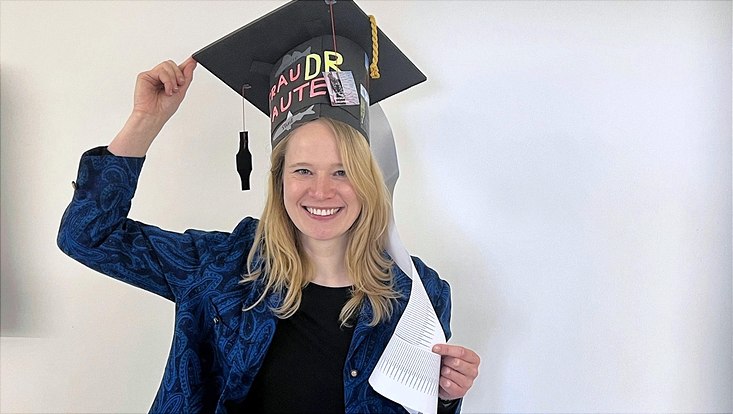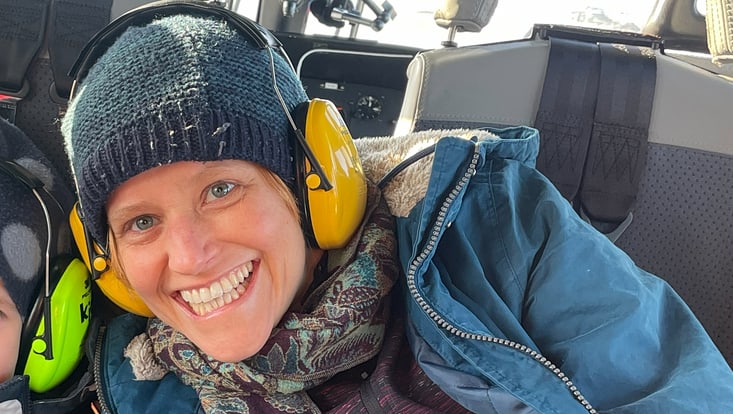Our congratulations to Elena Hauten!
4 December 2024, by RTG 2530

Photo: UHH/RTG2530/Grebe
On 2nd December 2024, the Institute of Marine Ecosystem and Fisheries Science (IMF) was fully dedicated to celebrating Elena Hauten's doctoral promotion. Fish could be spotted everywhere – on her lovingly crafted doctoral hat, on the homemade cake, and other gifts presented to her by colleagues from the IMF and the RTG 2530, as well as by friends and family members. She was rightly celebrated as the fourth graduate of the RTG 2530 for successfully defending her thesis on "Stable isotope ecology of fishes in the Elbe estuary".
Even before her time as a doctoral researcher of the RTG 2530, fish were part of Elena Hauten's biography, as she was already working on the 'Eel Taxi' project in 2019, helping eels to reach their spawning grounds safely in order to improve the survival of this endangered species.

UHH/RTG2530/Grebe
During her PhD, which she started in December 2020, she then focused on fish species such as smelt, flounder and ruffe. Her main focus was on how fish influence the carbon cycle in the Elbe estuary throughout the year. To find out, she caught fish at different times of the year and used 'stable isotope' analyses to investigate the sources from which the fish obtain their carbon and the habitats they prefer.
One of her particularly fascinating research findings concerns the flounder, a fish species with an extraordinary ability to adapt to different salinity levels. In winter, flounders increasingly migrate to freshwater areas and use shallow water areas as refuges. These areas offer good survival conditions, especially for young fish. In contrast to deeper and murkier areas, they are characterised by more light, greater food availability, and protection from strong tidal currents. Fittingly, Elena Hauten used the term ‘nursery area’ for these habitats.

UHH/RTG2530/Biederbick
She was also able to show that smelts and flounders, in particular, play a central role in the carbon cycle of the Elbe estuary. They transfer carbon and nutrients from the nutrient-rich shallow water areas to other areas of the ecosystem, thereby stabilizing the food web. Her lecture ended with a plea to protect the shallow water areas and, thus, these fish nurseries from further human intervention as far as possible.


